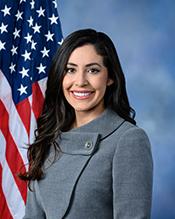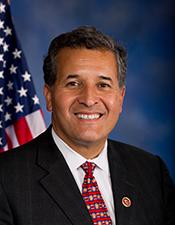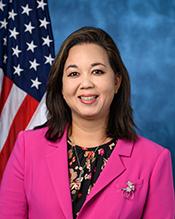0
0
0
Amending the Rules of the House of Representatives to permit Members to vote by proxy in certain cases, and for other purposes.
2/6/2024, 8:15 AM
Summary of Bill HRES 967
Bill 118 HRES 967, also known as the Proxy Voting Resolution, is a proposed amendment to the Rules of the House of Representatives that would allow Members of Congress to vote by proxy in certain situations. This resolution aims to address the challenges presented by the ongoing COVID-19 pandemic, which has made it difficult for all Members to be physically present in the House chamber for votes.
Under the Proxy Voting Resolution, Members would be able to designate another Member as their proxy to cast their vote on their behalf. This proxy voting would only be allowed in cases where the Member is unable to physically attend proceedings due to the pandemic or other extenuating circumstances. The resolution also includes provisions to ensure the security and integrity of the proxy voting process.
Supporters of the Proxy Voting Resolution argue that it is necessary to ensure that Congress can continue to function effectively during times of crisis, while opponents raise concerns about the potential for abuse and the impact on the traditional voting process. Overall, the Proxy Voting Resolution is a significant proposal that could have far-reaching implications for how Congress conducts its business in the future. It will be important for Members to carefully consider the potential benefits and drawbacks of proxy voting before making a decision on this bill.
Under the Proxy Voting Resolution, Members would be able to designate another Member as their proxy to cast their vote on their behalf. This proxy voting would only be allowed in cases where the Member is unable to physically attend proceedings due to the pandemic or other extenuating circumstances. The resolution also includes provisions to ensure the security and integrity of the proxy voting process.
Supporters of the Proxy Voting Resolution argue that it is necessary to ensure that Congress can continue to function effectively during times of crisis, while opponents raise concerns about the potential for abuse and the impact on the traditional voting process. Overall, the Proxy Voting Resolution is a significant proposal that could have far-reaching implications for how Congress conducts its business in the future. It will be important for Members to carefully consider the potential benefits and drawbacks of proxy voting before making a decision on this bill.
Congressional Summary of HRES 967
This resolution permits a Member of the House of Representatives who has given birth to designate another Member as a proxy to vote, except for a quorum call. The Member may designate such a proxy for up to six weeks after the birth.
Read the Full Bill
Current Status of Bill HRES 967
Bill HRES 967 is currently in the status of Bill Introduced since January 16, 2024. Bill HRES 967 was introduced during Congress 118 and was introduced to the House on January 16, 2024. Bill HRES 967's most recent activity was Referred to the House Committee on Rules. as of January 16, 2024
Bipartisan Support of Bill HRES 967
Total Number of Sponsors
1Democrat Sponsors
0Republican Sponsors
1Unaffiliated Sponsors
0Total Number of Cosponsors
68Democrat Cosponsors
54Republican Cosponsors
14Unaffiliated Cosponsors
0Policy Area and Potential Impact of Bill HRES 967
Primary Policy Focus
Alternate Title(s) of Bill HRES 967
Amending the Rules of the House of Representatives to permit Members to vote by proxy in certain cases, and for other purposes.
Amending the Rules of the House of Representatives to permit Members to vote by proxy in certain cases, and for other purposes.
Comments
Sponsors and Cosponsors of HRES 967
Latest Bills
Southern Nevada Economic Development and Conservation Act
Bill S 1005December 10, 2025
ADS for Mental Health Services Act
Bill S 414December 10, 2025
ASCEND Act
Bill S 1437December 10, 2025
Reliable Federal infrastructure Act
Bill HR 4690December 10, 2025
SHOWER Act
Bill HR 4593December 10, 2025
Dismissing the election contest relating to the office of Representative from the Fourteenth Congressional District of Florida.
Bill HRES 312December 10, 2025
Dismissing the election contest relating to the office of Representative from the Thirtieth Congressional District of Texas.
Bill HRES 311December 10, 2025
Dismissing the election contest relating to the office of Representative from the at-large Congressional District of Alaska.
Bill HRES 310December 10, 2025
Dismissing the election contest relating to the office of Representative from the Twenty-eighth Congressional District of Texas.
Bill HRES 309December 10, 2025
Dismissing the election contest relating to the office of Representative from the Fourteenth Congressional District of Florida.
Bill HRES 308December 10, 2025





